I'm new to C++ but so far most of the asio stuff has made sense. I am however stuggling to get my UDPServer working.
My question is possibly similar to: Trying to write UDP server class, io_context doesn't block
I think my UDPServer stops before work can be given to its io_context. However, I am issuing work to the context before calling io_context.run() so I don't understand why.
Of course, I am not entirely sure if I am even on the right track with the above statement and would appreciate some guidance. Here is my class:
template<typename message_T>
class UDPServer
{
public:
UDPServer(uint16_t port)
: m_socket(m_asioContext, asio::ip::udp::endpoint(asio::ip::udp::v4(), port))
{
m_port = port;
}
virtual ~UDPServer()
{
Stop();
}
public:
// Starts the server!
bool Start()
{
try
{
// Issue a task to the asio context
WaitForMessages();
m_threadContext = std::thread([this]() { m_asioContext.run(); });
}
catch (std::exception& e)
{
// Something prohibited the server from listening
std::cerr << "[SERVER @ PORT " << m_port << "] Exception: " << e.what() << "\n";
return false;
}
std::cout << "[SERVER @ PORT " << m_port << "] Started!\n";
return true;
}
// Stops the server!
void Stop()
{
// Request the context to close
m_asioContext.stop();
// Tidy up the context thread
if (m_threadContext.joinable()) m_threadContext.join();
// Inform someone, anybody, if they care...
std::cout << "[SERVER @ PORT " << m_port << "] Stopped!\n";
}
void WaitForMessages()
{
m_socket.async_receive_from(asio::buffer(vBuffer.data(), vBuffer.size()), m_endpoint,
[this](std::error_code ec, std::size_t length)
{
if (!ec)
{
std::cout << "[SERVER @ PORT " << m_port << "] Got " << length << " bytes \n Data: " << vBuffer.data() << "\n" << "Address: " << m_endpoint.address() << " Port: " << m_endpoint.port() << "\n" << "Data: " << m_endpoint.data() << "\n";
}
else
{
std::cerr << "[SERVER @ PORT " << m_port << "] Exception: " << ec.message() << "\n";
return;
}
WaitForMessages();
}
);
}
void Send(message_T& msg, const asio::ip::udp::endpoint& ep)
{
asio::post(m_asioContext,
[this, msg, ep]()
{
// If the queue has a message in it, then we must
// assume that it is in the process of asynchronously being written.
bool bWritingMessage = !m_messagesOut.empty();
m_messagesOut.push_back(msg);
if (!bWritingMessage)
{
WriteMessage(ep);
}
}
);
}
private:
void WriteMessage(const asio::ip::udp::endpoint& ep)
{
m_socket.async_send_to(asio::buffer(&m_messagesOut.front(), sizeof(message_T)), ep,
[this, ep](std::error_code ec, std::size_t length)
{
if (!ec)
{
m_messagesOut.pop_front();
// If the queue is not empty, there are more messages to send, so
// make this happen by issuing the task to send the next header.
if (!m_messagesOut.empty())
{
WriteMessage(ep);
}
}
else
{
std::cout << "[SERVER @ PORT " << m_port << "] Write Header Fail.\n";
m_socket.close();
}
});
}
void ReadMessage()
{
}
private:
uint16_t m_port = 0;
asio::ip::udp::endpoint m_endpoint;
std::vector<char> vBuffer = std::vector<char>(21);
protected:
TSQueue<message_T> m_messagesIn;
TSQueue<message_T> m_messagesOut;
Message<message_T> m_tempMessageBuf;
asio::io_context m_asioContext;
std::thread m_threadContext;
asio::ip::udp::socket m_socket;
};
}
Code is invoked in the main function for now:
enum class TestMsg {
Ping,
Join,
Leave
};
int main() {
Message<TestMsg> msg; // Message is a pretty basic struct that I'm not using yet. When I was, I was only receiving the first 4 bytes - which led me down this path of investigation
msg.id = TestMsg::Join;
msg << "hello";
UDPServer<Message<TestMsg>> server(60000);
}
When invoked the Server immediately exits before it gets chance to print "[SERVER] Started"
I'll try adding the work guard as the link post describes but I would still like to understand why the io_context is not being primed with work quick enough.

